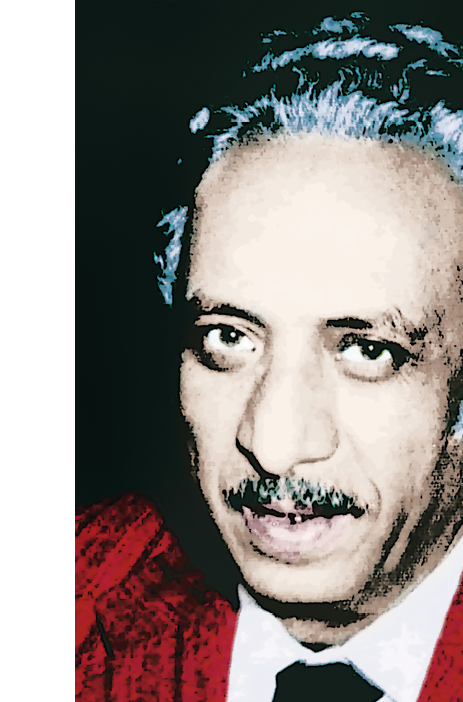‘Salah Abdel Sabour’ (3 May 1931 – 13 August 1981) is a pioneer of Arabic free verse poetry movement and an emblem of Arab modernism, influenced by western thought. Abdel Sabour is also one of the few Arab poets who made a momentous contribution to play writing. Our poet selectively kept himself at bay from traditional poetry and took a totally new direction in which, the poem bore his special imprints. He became a “knight” in the domain of modern poetry. ‘Abdel Sabour’ started to publish his poetry in newspapers and his fame became wider after releasing his poem “Execution of Zahran” that was related to the incident of executing a number of Egyptians by the then English colonizers. ‘Abdel Sabour’ was affected by the Italian writer ‘Luigi Pirandello’. This was clear in the two plays of “Laila and the Insane” and “The Princess Waits”, whereas the idea of the theater becomes obvious on the stage.
Name of ‘Abdel Sabour’ was attached to that of the Spanish poet ‘Lorca’ during performance of ‘Yerma’ on the Egyptian theater in the sixties, whereas chanted parts were required to be written into poetry. This was assigned to ‘Salah Abdel Sabour’.
People in my land prey as do hawks;
Their song is like the tremble of winter in treetops
And their cackle like the crackle of flames licking wicker.
Their footfalls flail and flounder in the ground
And they kill, they rob, they drink, they burp,
But they are human
And, at any rate,
Are kinder when they have a handful of coins
And they believe in fate.
There at the town gate would Old Uncle Mustapha sit,
He who loves the Prophet,
And he’d spend an hour twixt sundown and twilight,
Surrounded by a circle of somber males,
And he would tell them a tale of wisdom and insight,
A tale that would agitate and agonize their souls,
One that would make the men wail,
And go pale,
And quail before the abyss,
Before the tumult of profound terror and void and abyss:
“What is the purpose of human toil? What is the purpose of life?
O Lord!
The sun is thy own image, the crescent – thy cheekbone
And yonder tall mountains – thy sturdy throne.
Thou art all-knowing and awesome, O Lord.
A man may rise and climb and many castles build
And forty vaults with glittering gold he may fill,
But in the hush of dusk Azrael doth come
With a tiny notebook between index and thumb
Bearing at the top the name of that man.
And as Azrael raises his staff
He, who with one syllable came to “Be”, with a single breath comes to have “been”
And straight to hellfire roll the souls of men
O Lord …
How cruel and monstrous thou art, O Lord!”
Yesterday I went to visit my town;
Old Uncle Mustapha had died
And they laid him down in the ground.
No castles did he build (his hut was made of mud)
And behind his old coffin marched
Those who, like him, wore old flaxen robes.
They made no mention of the Lord or Azrael or the verb “to be”
For ’tis a year of hunger.
And there at the cemetery gate, I saw my friend Khalil,
Uncle Mustapha’s grandson, arise
And as he raised his brawny arm skyward
A scornful glare came over his eyes
For ’tis a year of hunger.
This poem bears the name of its divan ‘an-Nas fi Biladi (“People In My Land”)’. Published in 1956 during the Suez Crisis or War, the divan marked the beginnings of the free verse movement in Egyptian poetry.








































admin in: How the Muslim Brotherhood betrayed Saudi Arabia?
Great article with insight ...
https://www.viagrapascherfr.com/achat-sildenafil-pfizer-tarif/ in: Cross-region cooperation between anti-terrorism agencies needed
Hello there, just became aware of your blog through Google, and found ...